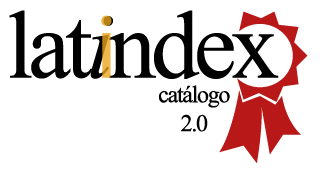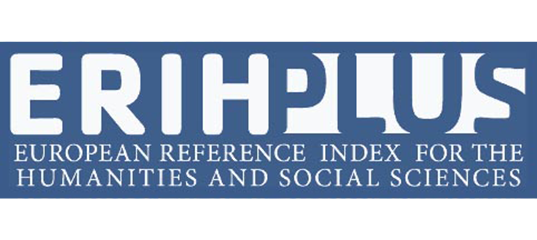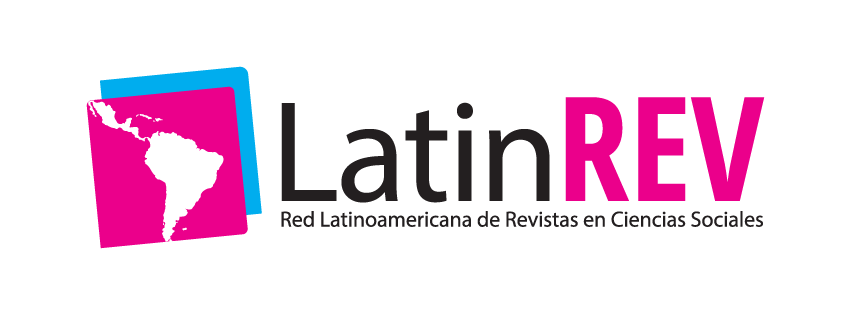Family support to the teacher in the care of children with learning disabilities in mathematics
Abstract
Currently, learning problems have become a critical point in basic primary and high school education. Even though in developed countries this type of problem has been investigated since the 1960s, in Latin America this topic is relatively recent. Dyslexia is the best known, but there are also disorders in mathematics, specifically dyscalculia, which is not generally known. Research indicates that most people who suffer from it are not diagnosed. Many parents are unaware that their children suffer from some type of learning problem, since many do not present obvious signs. This hinders the development of the child since early intervention has a beneficial impact on cognitive development. This work is aimed at investigating how family support affects the attention to learning problems in mathematics in fifth-year basic general education students; for this, surveys were conducted for parents, tutors, and teachers, an interview for the institution's DECE staff, and observation guides for students. A significant sample of the groups was chosen, the collected data was tabulated and analyzed, finding that there is no knowledge among most of the parents about this problem, although tutors and teachers have medium knowledge about it, and the institution has tools to help students.
Downloads
Metrics
References
Altabakhi, I. W., & Liang, J. W. (16 de 12 de 2019). Gerstmann Syndrome. Obtenido de National Center for Biotechnology Information, U.S. National Library of Medicine: https://www.ncbi.nlm.nih.gov/books/NBK519528/
Bird, R. (2017). The Dyscalculia Toolkit: Supporting Learning Difficulties in Maths. London: Sage.
Calvo, M. I., Verdugo, M. A., & Amor, A. M. (2016). La Participación Familiar es un Requisito Imprescindible para una Escuela Inclusiva. Revista Latinoamericana de Educación Inclusiva, 10(1). doi:http://dx.doi.org/10.4067/S0718-73782016000100006
Carlson, N. (1996). Fundamentos de psicología fisiológica. Mexico: Prentice Hall.
Child Mind Institute. (12 de 06 de 2019). Información básica sobre el trastorno por déficit de atención e hiperactividad. Obtenido de Child Mind Institute: https://childmind.org/article/informacion-basica-sobre-el-trastorno-por-deficit-de-atencion-e-hiperactividad/
Chinn, S. (2017). Identification of dyscalculia. Obtenido de Steve Chinn: http://www.stevechinn.co.uk/dyscalculia/identification-of-dyscalculia
Clinica Mayo. (22 de 07 de 2017). Dislexia, Sintomas y causas. Obtenido de Mayo Clinic: https://www.mayoclinic.org/es-es/diseases-conditions/dyslexia/symptoms-causes/syc-20353552
CONADIS. (21 de 08 de 2020). Estadisticas de Discapacidad. Obtenido de Consejo Nacional de Igualdad de Discapacidades: https://www.consejodiscapacidades.gob.ec/estadisticas-de-discapacidad/#
Educar21. (27 de 09 de 2017). Teorias de aprendizaje mas influyente. Obtenido de Educar 21: https://educar21.com/inicio/2017/09/27/teorias-de-aprendizaje-mas-influyentes/
Finn, R. (2019). Specifying the contributions of parents as pedagogues: Insights for parent–school partnerships. The Austrralian Educational Researcher, 46, 879-891. doi:https://doi.org/10.1007/s13384-019-00318-2
Fourneret, P., & Da Fonseca, D. (2019). Niños Con Dificultades de Aprendizaje. Barcelona: Elsevier.
Gubbins, V., & Ibarra, S. (2016). Estrategias Educativas Familiares en Enseñanza Básica: Análisis Psicométrico de una Escala de Prácticas Parentales. Psykhe, 1-17. Obtenido de https://scielo.conicyt.cl/pdf/psykhe/v25n1/art10.pdf
Hannell, G. (2005). Dyscalculia: Action Plans for Successful Learning in Mathematics. Londres: Routledge.
Hayes, C. (2020). Midiendo el impacto de la dislexia: alcanzando un balance exitoso para individuos, famlia y sociedad (Measuring the Impact of Dyslexia: Striking a Successful Balance for Individuals, Family and Society). Ney York: Routledge.
Isaacs, D. (2015). La Educación de las Virtudes Humanas y su Evaluación (Re-edición en español). Navarra: Ediciones Universidad de Navarra.
Jacobson, R. (2019). How to spot dyscalculia. Obtenido de Child Mind Institute: https://childmind.org/article/how-to-spot-dyscalculia/
Kosc, L. (1974). Developmental Dyscalculia. Journal of Learning Disabilities, 164-177.
Kumar, P., & Agrawal, N. (2019). Learning Disabled and Their Education in India. Human Arenas, 228-244. doi:https://doi.org/10.1007/s42087-018-0035-5
Lastre Meza, K., Lopez Salazar, L. D., & Alcazar Berrio, C. (2018). Relación entre apoyo familiar y el rendimiento académico en estudiantes colombianos de educación primaria. Psicogente, 102-115. doi:10.17081/psico.21.39.2825
Lopez, G., & Guaimaro, Y. (2016). El rol de la familia en los procesos de educación y desarrollo humano de los niños y niñas. Ixaya. Revista Universitaria de Desarrollo Social, 31-55.
Madarnas, M. J. (2016). Ejercicios para mejorar la discalculia. Obtenido de Educa Peques: https://www.educapeques.com/dificultades-de-aprendizaje/discalculia/ejercicios-para-mejorar-la-discalculia-en-casa.html
Montagud Rubio, N. (03 de 05 de 2018). Estrategias de enseñanza: qué son, tipos y ejemplos. Obtenido de Psicología y Mente: https://psicologiaymente.com/desarrollo/estrategias-ensenanza
NCLD. (2018). Acerca de. Obtenido de National Center for Learning Disabilities: https://www.ncld.org/about/
Shalev, R., Auerbach, J., & Manor, O. (2000). Discalculia de desarrollo: Prevalencia y prognosis (Developmental dyscalculia: prevalence and prognosis). European Child & Adolescent Psychiatry, 58-64.
Strickler, L. (2019). Families’ Capacity to Engage in Science Inquiry at Home Through Structured Activities. Early Childhood Educational Journal, 653-664.
UNIR Revista. (13 de 05 de 2020). El trastorno del aprendizaje no verbal. Obtenido de Unir Revista: https://www.unir.net/educacion/revista/noticias/trastorno-aprendizaje-no-verbal/549204995338/
Urias Martinez, M. L., Urias Murrieta, M., & Valdez Cuervo, A. A. (2017). Creencias docentes del uso de tecnologías por familias para involucrarse en educación. Apertura, 148-159. doi:10.32870/ap.v9n2.1100
Valdez Cuervo, A. A., & Sanchez, P. A. (2016). Las creencias de los docentes acerca de la participación familiar en la educación. Revista electrónica de investigación educativa, 18, 105-115. Obtenido de http://www.scielo.org.mx/scielo.php?script=sci_arttext&pid=S1607-40412016000200008
Witzel, B., & Mize, M. (2018). Meeting the Needs of Students with Dyslexia and Dyscalculia. SRATE Journal, 31-39.
Yana Salluca, M., & Adco Valeriano, H. (2018). Acompañamiento pedagógico y el rol docente en jornada escolar completa: Caso instituciones educativas Santa Rosa y Salesianos de San Juan Bosco - Puno Perú. Journal of High Andean Research, 137-148. Obtenido de http://www.scielo.org.pe/pdf/ria/v20n1/a13v20n1.pdf
PDF (Español (España)) 463 HTML (Español (España)) 0
Authors maintain the rights to the articles and are therefore free to share, copy, distribute, execute, and publicly communicate the work on their personal websites or in institutional deposits, after its publication in this journal, as long as they provide bibliographic information that certifies its publication in this journal.
The works are under one https://creativecommons.org/licenses/by-nc-nd/4.0/




























